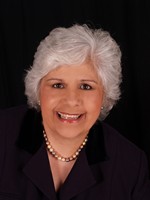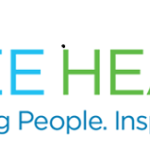Dr. Mariceli Comellas last year moved from New York to Miami to accept a position at Florida International University as assistant professor in Health Services Administration. Three months ago, she was also named assistant chair for the Master of Health Services Administration (MHSA), and since that time her mission has been to expand the program.
"The goal for me is to bring students not only from Florida, but also from throughout the nation. Our student population is predominantly coming from Florida, and we want to expand nationwide, and internationally. So the ultimate goal is to have students from all over the world, because that way students would find solutions that benefit health care providers and patients from different perspectives and realities."
In 2011, the MHSA transitioned from the School of Public Health to the Nicole Wertheim College of Nursing and Health Sciences, and was then revamped in 2016 with the first Hybrid program track. A year later, to satisfy the demands of the working adult, the college added the fully online MHSA degree program, accepting its first students in the fall 2017 semester.
Dr. Comellas explained that in the Hybrid program, students spend part of their time coming to campus for traditional class meetings, which gives the opportunity to interact in-person with the instructor and other peers; and the other part interacting in online classes, which provides the opportunity to learn remotely from anywhere.
"The online program is what we’re looking to have international students benefit from. This program allows all students to take 100% of all classes remotely; and even though they won’t have the opportunity to meet their peers in person, they will interact with more international audiences."
Both programs offer options for practical applications in the final semesters. "One is having students focus on a research program – at the beginning of the first semester they assess the health care needs of the organization, which could be anything from the organization itself or the needs of patients – and the next semester they write up specific recommendations for what they found that was most needed." Dr. Comellas said many of the graduate students are already working in the field, so they may choose to focus on the organization where they work or have a relationship with.
Another option is for the students to do an administrative residency, which gives them the opportunity to be placed within an institution. "We engage with all types of health care organizations, and the students work with them throughout the semester. That could mean interacting with the director of finance, or working with different departments, depending where the students match." Dr. Comellas told of the time when she was teaching a finance course and took her students to one of the biggest hospitals in South Florida. "We met with the hospital’s vice president of community relations, along with outreach coordinators, and took a tour of the new facilities."
Dr. Comellas believes that as the population ages, the Master’s program is important because of the increased need for health care services. "We feel there’s definitely a need for health administrators to take on those responsibilities for implementing new programs and executing new regulations and trends that the government implements, which organizations must follow to run their businesses. In our program, we have courses that are geared toward the latest trends – for example, information technology and how it helps organizations streamline programs."
When Dr. Comellas lived in New York, she worked full-time and was also a part-time student, and she came in contact with students from different parts of the world, where health care systems are definitely different. Students in FIU’s MHSA program learn about policies and how the U.S. health care system works and is changing constantly. "I think that’s a very valuable skill that (international) students can grasp in this program, where they can understand how to do a quality assessment of a health care organization and find meaningful ways in which the United States solves problems. I believe that would be a key takeaway from our program."
The program has a very high graduation rate, with students already working in management positions, including as directors or heads of departments. For instance, she said the same day they were taking the tour in the Miami Hospital, one of the managers, who joined the tour to welcome the students, had graduated from the program; another day, when she was a patient in a doctor’s office, the administrator was taking down her information, and when she heard that Dr. Comellas worked for the program, she said she graduated from that program. "It is wonderful, and I felt so proud of them."
Approximately 8% of the population has obtained a Master’s degree in the United States. The U.S. Bureau of Labor Statistics reports that healthcare is the fastest-growing occupation (+18%), which generally requires a Master’s degree. This growth is mainly attributable to the concentration of these occupations in the healthcare and social assistance industries, which, combined, are projected to add 255,000 of the 448,500 new jobs in occupations that require a Master’s.
Health service managers’ careers are expected to increase 20% between 2016 to 2026 – a growth that is faster than the average of all other occupations. One of the reasons for the growth of the career is the aging of a Baby Boomers population that remains active later in life; therefore, health service demands are expected to increase as well. In Florida, where most senior retirees live, health service managers capable of handling the demand in health centers are needed. The advanced Master’s program in Health Services Administration at Florida International University (FIU), under the Nicole Wertheim School of Nursing and Health Sciences, offers a pipeline for trainees that focuses on providing current training and experience related to the field for future health care administrators.
The FIU MHSA 48-credits degree program is also one of the few such programs in the United States that offers an internship, where graduate candidates are ‘matched’ to a health organization to work under a preceptorship as part of their culminating experience. This type of experience ensures the students are well-prepared and exposed to real-world healthcare challenges and solutions. The residency exposes students both to different ââhealth services administration, such as finance, accounting, management, and other areas, and to professionals in healthcare.

























